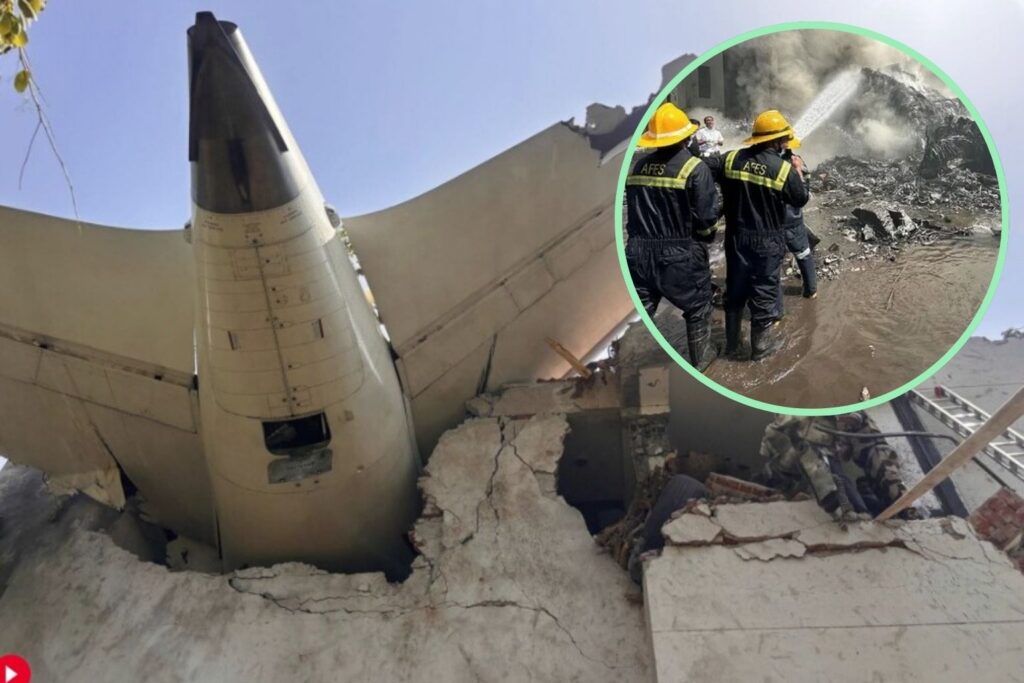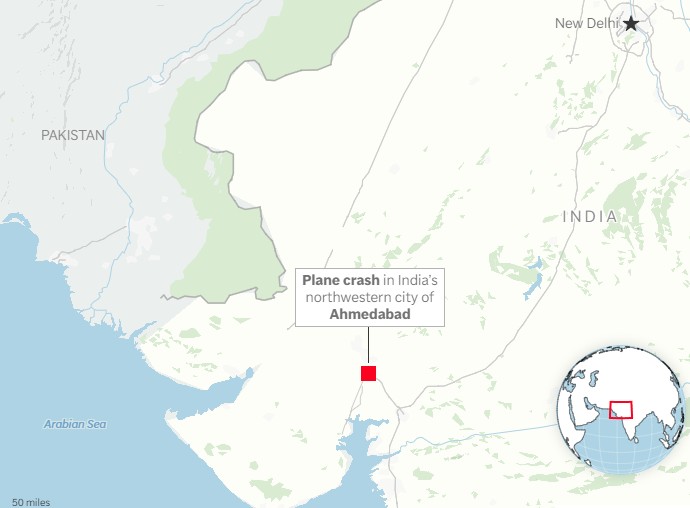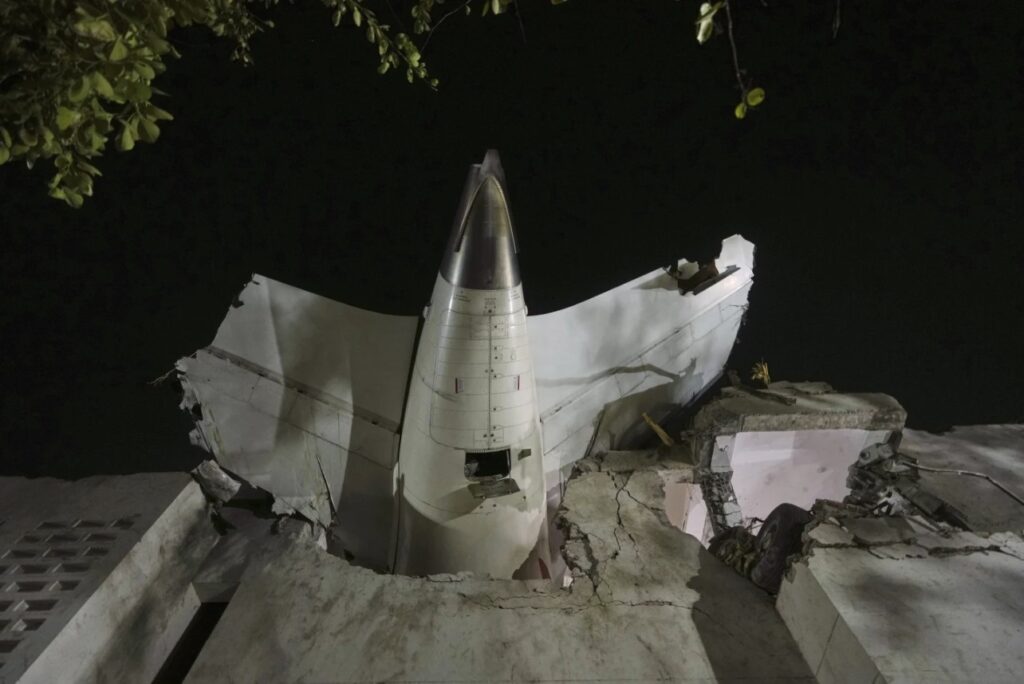Air India Dreamliner Crashes into Ahmedabad Residential Area, Killing 241 in 787’s First Fatal Disaster

AHMEDABAD, India – An Air India Boeing 787 Dreamliner bound for London crashed into a residential area here on Thursday afternoon just moments after takeoff, killing 241 of the 242 people aboard in one of India’s worst-ever aviation disasters. The aircraft, flight AI171, impacted a medical college hostel, causing a massive fire and an unconfirmed number of casualties on the ground.
The disaster, which occurred at approximately 1:40 p.m. local time on June 12, 2025, marks the first fatal crash for the globally popular Boeing 787 since the aircraft was introduced over a decade ago. The incident pierces the Dreamliner’s excellent safety record and places the workhorse of modern long-haul travel under intense international scrutiny.
Investigation Launched into AI171 Crash
India’s Aircraft Accident Investigation Bureau (AAIB) has launched a full-scale investigation into the cause of the Air India AI171 crash. According to the Directorate General of Civil Aviation (DGCA), the flight crew issued a “mayday” distress call approximately one minute after departing Sardar Vallabhbhai Patel International Airport.
Flight tracking data indicates the aircraft struggled to gain altitude, reaching a maximum of only 625 feet before it began a rapid descent. Verified videos circulating online show the plane flying at an unusually low altitude over buildings with its landing gear not retracted, a deviation from standard flight procedures. Contact was lost shortly after the distress call.
Experts have stated it is too early to determine a cause, but are considering multiple factors, including a possible double engine failure or an issue with the wing flaps. The aircraft’s flight data recorder and cockpit voice recorder will be critical to the investigation.
Teams from the U.S. National Transportation Safety Board (NTSB) and the United Kingdom’s Air Accidents Investigation Branch (AAIB) are being deployed to assist Indian authorities, a standard protocol when their nationals or manufactured aircraft are involved.

A Sole Survivor and a Nation in Mourning
In a stunning turn, one person aboard the flight, British national Vishwashkumar Ramesh, survived the crash. He was reportedly seated in seat 11A, near an emergency exit, and was rescued from the wreckage. “Thirty seconds after take-off, there was a loud noise and then the plane crashed. It all happened so quickly,” Ramesh told local media.
The 241 deceased include all 12 crew members and 229 passengers. Among the victims was Vijay Rupani, the respected former Chief Minister of Gujarat, the state where the crash occurred. The passenger manifest included 169 Indian, 53 British, seven Portuguese, and one Canadian national.
The crash also had a devastating impact on the ground. At least five students at the B.J. Medical College hostel were killed, and dozens more were injured when the aircraft struck the building.

Global Reactions and Airline Response
Condolences have poured in from around the world. Indian Prime Minister Narendra Modi described the event as “heartbreaking beyond words”. In the United Kingdom, Prime Minister Keir Starmer and King Charles III both expressed their sorrow and offered support to the families of the British victims.
Boeing issued a statement extending thoughts to all those affected and pledging technical support for the investigation.
Air India, which is operated by the Tata Group, announced it would provide a compensation of 1 crore rupees (approximately £86,000) to the families of each person killed. The airline’s CEO, Campbell Wilson, stated the company’s focus is on supporting the passengers, families, and crew affected by the tragedy. An emergency hotline has been established for family members seeking information.
The Air India AI171 crash will undoubtedly lead to heightened scrutiny of aviation safety protocols in India and could have wide-ranging consequences for Boeing and the global airline industry pending the results of the investigation.





